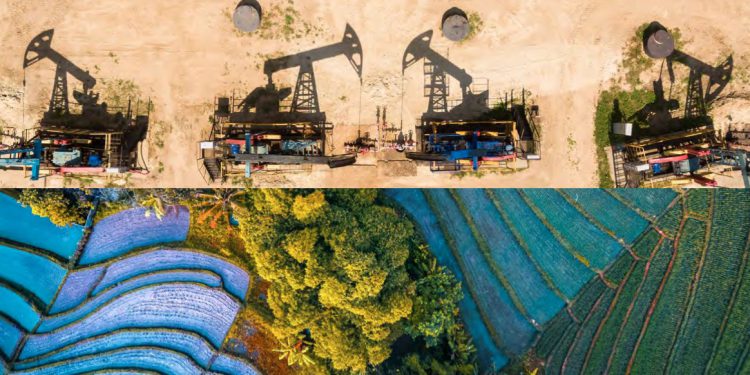A UN report has highlighted the extreme dangers of the greenhouse gas methane, as well as cost-effective measures to reduce it dramatically.
Most measures are focussed on quick fossil fuel wins within the energy sector, but the role of agriculture is also highlighted.
The report Global Methane Assessment: Benefits and Costs of Mitigating Methane Emissions includes a web-based tool showing how key policy decisions can mitigate methane levels. It’s available here.
Drew Shindell, who chaired the assessment for the Climate and Clean Air Coalition (CCAC), and is Professor of Climate Science at Duke University, said, “Urgent steps have to be taken to reduce methane emissions this decade.
“Most of the required actions bring health and financial benefits as well as climate benefits, and all the technology needed is already available.”
“The Global Methane Assessment only increases the urgency of acting,” added Jutta Paulus, Member of the European Parliament, Greens/EFA.
A 45 per cent reduction would prevent 260,000 premature deaths
“We must tackle emissions in the energy sector, and landfills, agriculture, and abandoned coal mines. Setting aside dedicated funds for these super-emitters will be well-invested money to help reach climate targets in 2030.”
The report analyses, for the first time, climate and air pollution costs against the benefits of methane reduction.
A 45 per cent reduction would prevent 260,000 premature deaths, 775,000 asthma-related hospital visits, 73 billion hours of lost labour from extreme heat, and 25 million tonnes of crop losses each year.
The crop yield increases would be worth about US$4 billion per year, the increased labour productivity about $6.3 billion per year, and reduced risk of premature deaths is worth $250 billion.
By implementing simple solutions, methane emissions can be reduced by 30 per cent by 2030, it says.
Roughly 60 per cent of the targeted measures are low cost and 50 per cent of those have negative costs, meaning companies make money from taking action. The greatest potential for negative costs is in the oil and gas industry where preventing leaks and capturing methane adds to revenue, instead of releasing the gas into the atmosphere.
Methane in the atmosphere shot up to record levels last year
A shift to renewable energy, residential and commercial energy efficiency, and reducing food loss and waste, can reduce methane emissions by a further 15 per cent by 2030.
Covid-19 induced slowdowns last year prevented another record for carbon dioxide emissions, but methane in the atmosphere shot up to record levels according to data recently released by the United States National Oceanic and Atmospheric Administration (NOAA).
Methane is a an extremely powerful greenhouse gas, responsible for about 30 per cent of warming since pre-industrial times. But, unlike carbon dioxide emissions which stay in the atmosphere for hundreds of years, methane breaks down quickly, with most of it gone after a decade. This means cutting methane emissions rapidly reduces the rate of warming in the near-term.
In the fossil fuel sector, oil and gas extraction, processing, and distribution account for 23 per cent of human-caused methane emissions and coal mining accounts for 12 per cent of emissions. In the waste sector, landfills and wastewater make up about 20 per cent of emissions.
In the agricultural sector, livestock emissions from manure and enteric fermentation represent roughly 32 per cent, and rice cultivation eight per cent of emissions.
Not all healthy diets are sustainable and not all sustainable diets are healthy
Reducing food loss and waste, improving livestock management, and healthier diets could reduce methane emissions by up to 80 metric tons over the next few decades. So, despite the difficulties, the possible impact of policies should not be ignored.
The report noted that according to the Food and Agriculture Organization current food consumption patterns are responsible for 21 to 37 per cent of total greenhouse gas emissions.
The world will need to produce about 50 per cent more food by 2050 to feed the growing world population so unless dietary patterns and food systems change, this will cause significant increases in greenhouse gas emissions.
Not all healthy diets are sustainable and not all diets designed for sustainability are healthy. The FAO says, “this important nuance is not well understood and is missing from ongoing discussions on the contribution of healthy diets to environmental sustainability.”
Policies that integrate environmental and nutritional priorities are limited but studies show that combining health, air pollution and greenhouse gas benefits can encourage better dietary choices.























